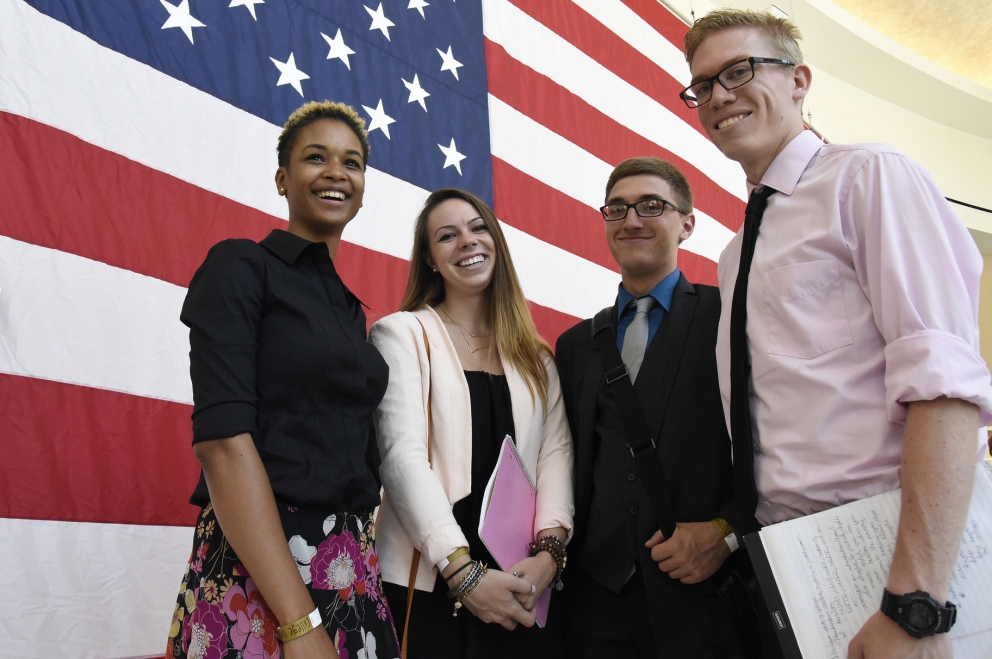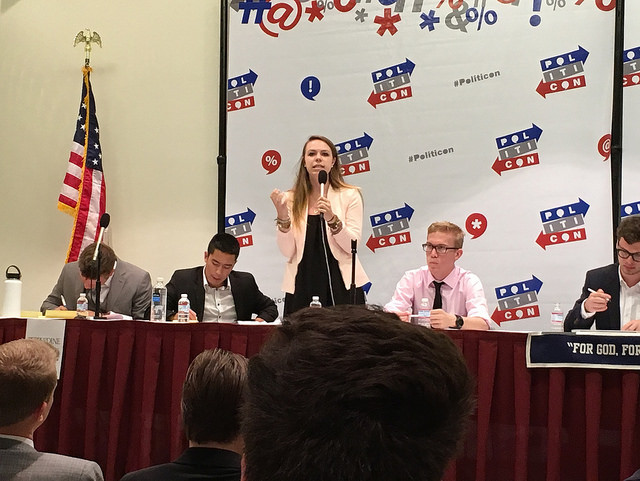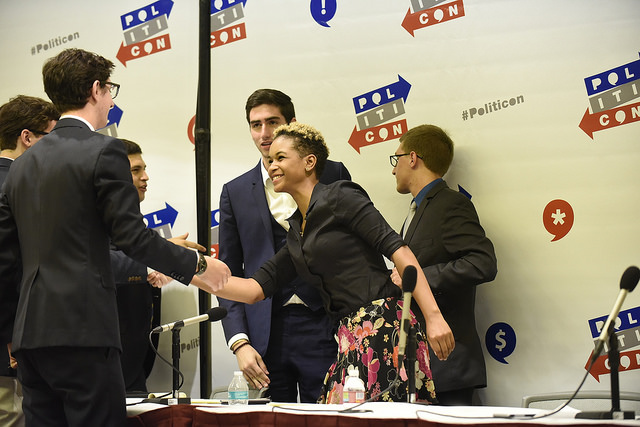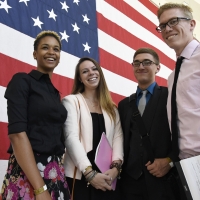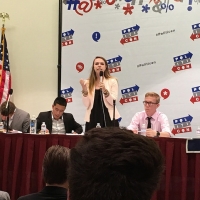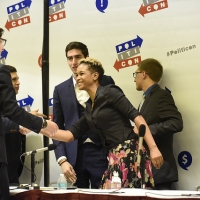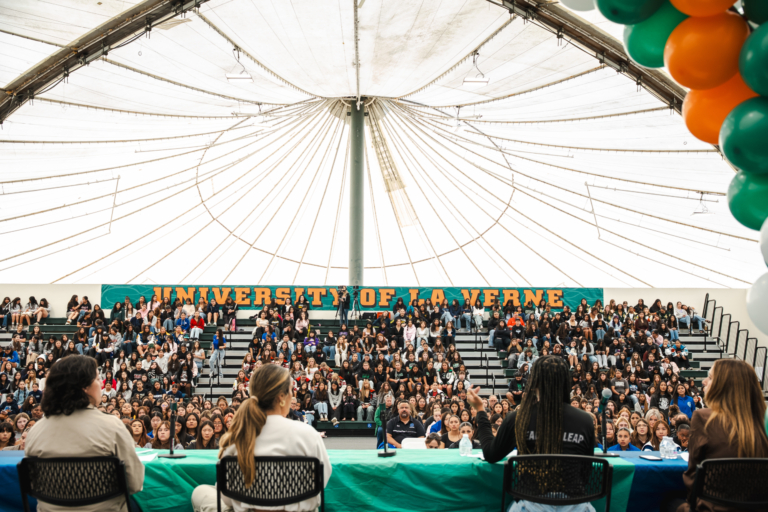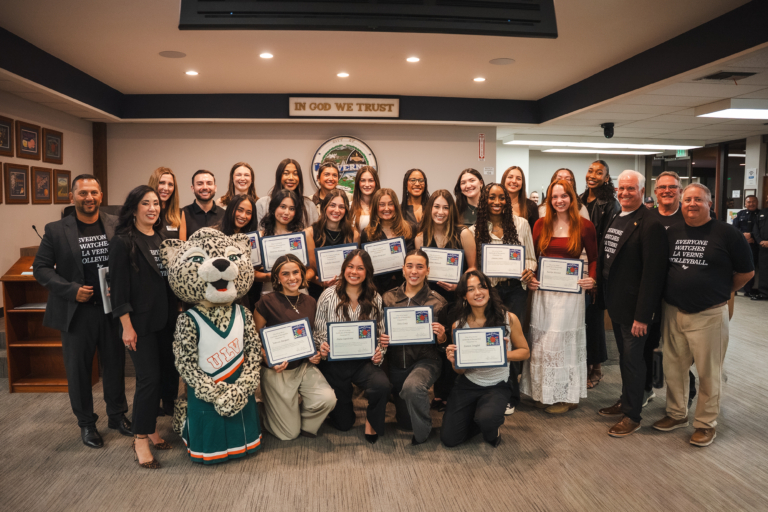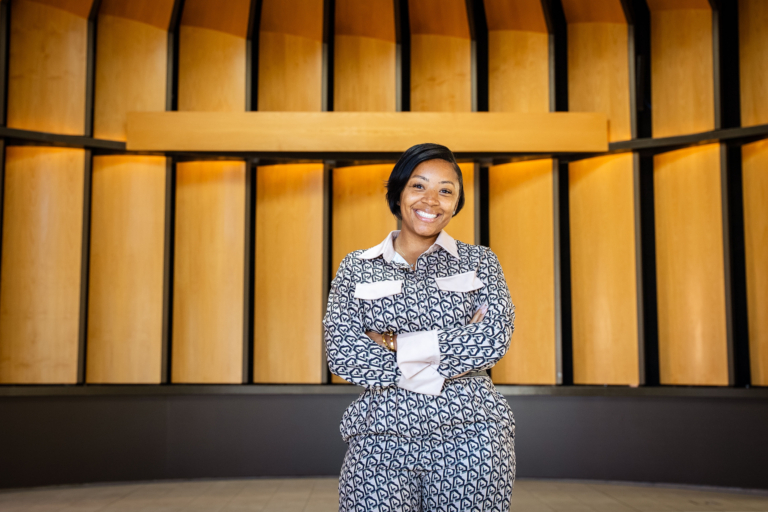La Verne Debate Team Takes on Yale at Politicon
Teams up with UCLA, Pepperdine Debating Citizenship and Universal Basic Income
The University of La Verne’s championship debate team competed at the national event known as Politicon, a self-described “Unconventional Political Convention” over June 25 and 26 at the Pasadena Convention Center.
Politicon featured political figures and pundits including Sarah Palin, James Carville, Glenn Beck, Darrell Hammond and Ann Coulter.
La Verne’s team of debators – Tanner Long (’17), Meaghan McHenry (’17), Tyler Anderson (‘19) and incoming freshman Kaiden Ricksecker (’20) – teamed up with UCLA and Pepperdine in two different debates against Yale.
On Sunday morning, they were paired with a team from UCLA against Yale to debate the issue of citizenship rights, arguing the question of whether it is discriminatory for the government to give preferences, privileges, and services to citizens over non-citizens within our borders.
In the afternoon, La Verne debaters paired with a team from Pepperdine University to take on Yale and UCLA on the question of whether a universal basic income would reduce inequality and produce economic gains for the country.
Two different panels of judges praised the La Verne teams for their style and arguments.
The University of La Verne founded its debate team in 1912 and it remains the only Hispanic Serving Institution to ever garner a national championship, which it won in 2007. Over 70 schools and a total of 180-200 teams, many representing elite Tier One research universities, compete in the annual national championships.
“I could not be more proud of the members of our University of La Verne debate team,” said President Devorah Lieberman. “Their outstanding performance at Politicon has once again proven that commitment, dedication, hard work, and practice make them competitive with some of the most prestigious colleges in the country.”
Coached by director of forensics Robert Ruiz, who is also interim chair of La Verne’s speech communications department, the team is made up of 35 members that reflect the University’s student body.
“Our team members are incredibly diverse,” said Ruiz, “including Native Americans, Hispanics, Muslims, Jews, African-Americans and Whites. Our debaters are freshmen, sophomores, juniors and seniors, and our newest team member Kaiden Ricksecker is a recent high school graduate and will start at La Verne in the fall.”
Nineteen of the 35 team members are women, which is highly unusual for national collegiate debate teams, where the percentage of women is generally 30% or lower.
Ruiz also noted that his debaters reflect the socio-economic background of the majority of La Verne students, with many being first-generation college goers and even newly documented students.
“La Verne’s debaters bring an unusual sensibility to their performance,” said Ruiz. “I believe we have been so successful in part because our team members often bring a personal narrative of struggle and wanting to succeed. In a debate on the welfare system for example, our students add the nuance of their own lived experience to a traditional litany of data.”
The La Verne debate team has excelled in the British Parliamentary style of debate, which includes four teams in each debate, versus the American style of two teams. This has allowed the team to compete on an international level, which very few American universities have been doing. Their training includes three times weekly practices throughout the year, including over the summer.
